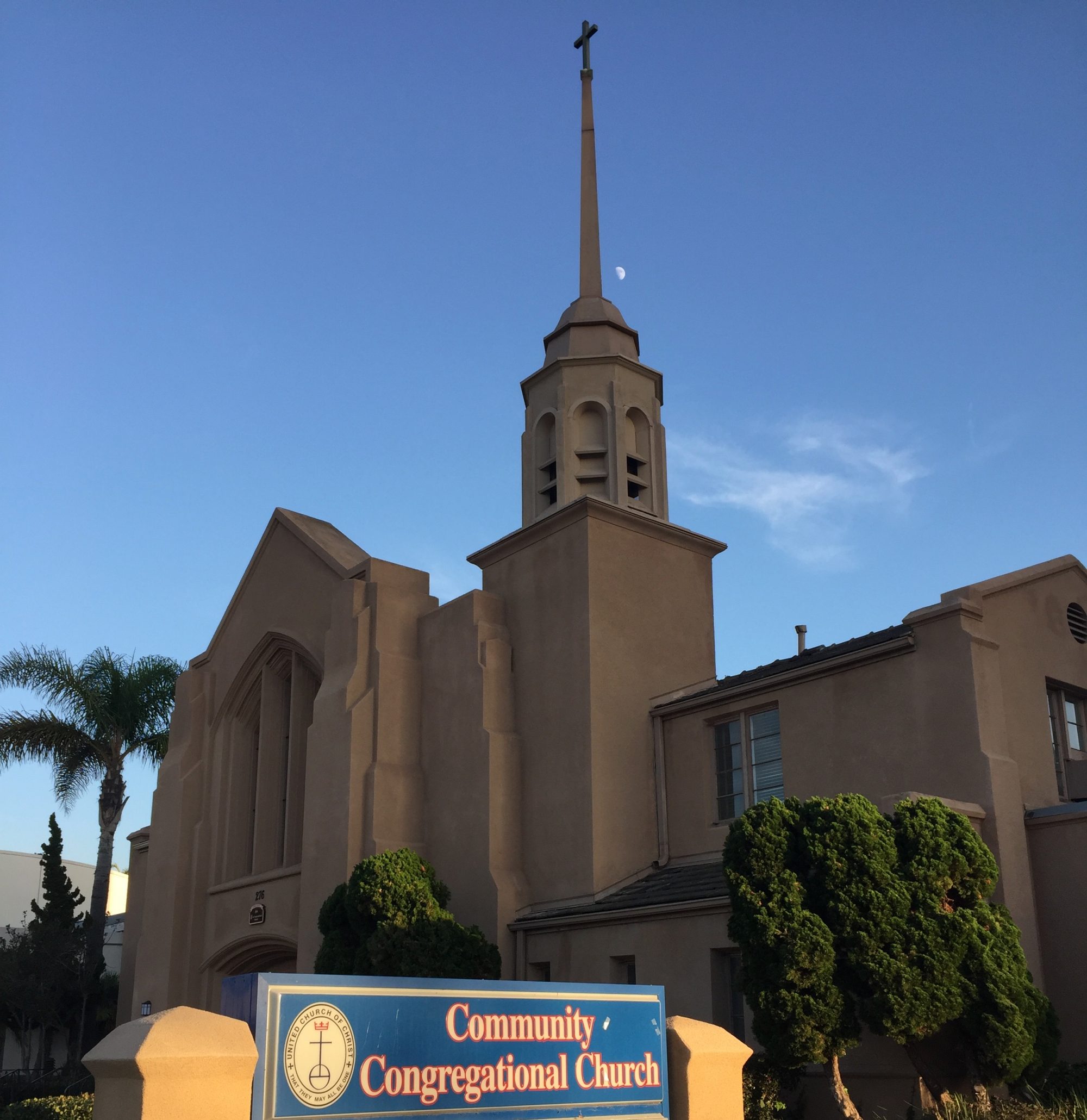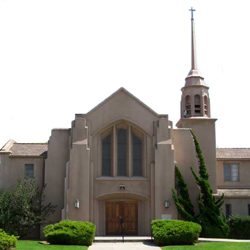“Praying When Wrong”
A meditation based on Psalm 51:1-12
March 18, 2018
Community Congregational Church of Chula Vista
Dr. Sharon R. Graff
* * * * *
Today we turn our attention to how we can pray when we’re in the wrong. And it’s probably best to begin with a joke. This old joke about making mistakes was credited to Charles M. Schulz. Remember he gave us that wonderful Peanuts comic strip for so many years. Mr. Schulz once said, “I never made a mistake in my life. I thought I did once, but I was wrong.”
The truth of the matter is we each make mistakes. And spoiler alert: God is not at all surprised when we do…and has a path already paved and prepared for us when we goof up. Now lest we get too daring or cavalier about those mistakes, remember what the Apostle Paul once wrote: don’t just keep sinning so that God’s grace may abound! No! However, when we do make mistakes—the large public ones and the small often unnoticed—today’s psalm offers us a healthy way forward. Let’s look at it a bit more closely.
Eugene Peterson’s modern-language translation of the Bible entitled, The Message, translates the Psalm reading for today in the following way:
Generous in love—God, give grace! Huge in mercy—wipe out my bad record.
Scrub away my guilt, soak out my sins in your laundry.
I know how bad I’ve been; my sins are staring me down.
You’re the One I’ve violated, and you’ve seen it all, seen the full extent of my evil.
You have all the facts before you; whatever you decide about me is fair.
I’ve been out of step with you for a long time, in the wrong since before I was born.
What you’re after is truth from the inside out. Enter me, then; conceive a new, true life.
Soak me in your laundry and I’ll come out clean, scrub me and I’ll have a snow-white life.
Tune me in to foot-tapping songs, set these once-broken bones to dancing.
Don’t look too close for blemishes, give me a clean bill of health.
God, make a fresh start in me, shape a Genesis week from the chaos of my life.
The phrase “a Genesis week” leapt off the page when I first read this particular translation. What is “a Genesis week” and what might it teach us about praying when we’ve sinned? I imagine that the translator was thinking of the first two chapters of Genesis, when order is brought out of chaos, where breathtaking beauty springs up with just a word or two from the divine voice, when God looks around on a daily basis, and says with pride, “It is good…It is very good…!”
Yes, this is the kind of Genesis week we want and need. A week of decluttering the messes, a week of bringing order out of chaos, a week when all that is planned actually goes as planned, a week with no shocks, no unexpected challenges, a week of unparalleled beauty. As the comics often say, “I’d like to live on that planet!” That kind of Genesis week, as we well know, is simply unattainable and unrealistic. To expect it is to set ourselves up for failure and disappointment. For we know that, as when Jacob wrestled with those angels, out of struggle comes certainty. Wrestling with ideas and dreams and plans and, yes, even wrestling with people, can result in a blessing or two…a new direction perhaps, or a new way of thinking about life. In Jacob’s case, his struggling netted him a brand new name: Israel, “the one who strives with God.”
Several years ago, the Christian Century magazine reported that a church youth group was discussing how 9/11 affected their prayer life. One young man said he’s not been able to pray since that event, for he assumes that many of the people in those planes and buildings were praying that God would spare them, and their prayers were not answered. Another fellow
said he cannot pray either, but for a different reason: he assumes that the terrorists were praying to their God for courage to follow through on their plans, and their prayers were answered. Then a young woman quietly admitted that she is still praying. She is an artist, and she went on to say that, as an artist, she tends to pray with images. In her images, the victims and the perpetrators of 9/11 are sitting around a table in heaven, trying to figure out together what happened on that day. What an incredible image! What an amazing gift from the heart and mind of an artist! Centered in the beauty of God, this young woman holds out for us a powerful model of prayer.
If the essence of God is beauty and love—not power or authority or dominance or anger or vengeance or any of the other traditional characteristics often ascribed to the divine—if the essence of God is beauty and love, then friends, the essence of our praying, even and especially when we are wrong, is prayer that is steeped in the assurance that God loves us dearly.
In this Psalm we read together this morning, God’s love takes the form of forgiveness,
and it’s a pretty healthy dose of forgiveness at that! By my count, David had broken five of the Ten Commandments including murdering the husband of his mistress, yet none of that kept him from experiencing God’s love full force. Three profound Hebrew words are used
by the psalmist to describe God’s grace: they are ?anan, ?esed, and ra?amim. The first translates to “be gracious;” the second “steadfast love;” and the third “compassion” or more accurately, “motherly compassion.”
These three words for God’s grace are found throughout the Hebrew scriptures, as God repeatedly welcomes back those who have strayed and tirelessly seeks out those who are lost. As one commentary writer has forcefully stated, “…the reality of God’s steadfast love
is more fundamental than the reality of human sinfulness…In short, God forgives sinners.”
God’s heart is very large, large enough to accommodate all, even when all have sinned. As the Apostle Paul so eloquently wrote, “there is nothing that can separate us from the love of God…” Nothing can stop God from loving us…not even your worst sin on your most challenging day of life. Given the unmistakable reality of God’s ?anan—gracious character,
of God’s ?esed—steadfast love, and of God’s ra?amim—compassion, it follows that we are to extend that same graciousness, that same motherly compassion, that same forgiveness to all.
If we see God this way, as the force of love in the world, then when we act contrary to love, we are acting against God. Hence the psalmist prays honestly, and in a spirit of confession:
- God, I messed up
- God, I am in need of your mercy
- God, I am in need of cleansing in your love
- My wrongs are against you, for you only act in love…I did not…please forget that and help me move on with your love as my cover
- And then those beautifully familiar hopeful words: Create in me a clean heart, O God, and put a new and right spirit within me. Do not cast me away from your presence, and do not take your holy spirit from me. Restore to me the joy of your salvation, and sustain in me a willing spirit.
Or, as The Message Bible translates this last thought: “God, make a fresh start in me,
shape a Genesis week from the chaos of my life.”
Imagine how your life would be different if, the next time you really mess up, instead of beating yourself for what you did, imagine how it would feel to say those words instead… “God, make a fresh start in me, shape a Genesis week from the chaos of my life.”
Short. Simple. Honest. Confessing. Admitting.
Not trying to hide, yet also recognizing that God’s love is greater than your sin.
God’s love is bigger than any wrong you can even imagine committing. God’s love is a cover that cloaks you and protects you and forgives you and releases you so that you can live in that love of God and reflect that love of God better tomorrow than you did today. Beating yourself for your wrongs does nobody any good, least of all you. Beating yourself for messing up doesn’t please God, nor is it required by God as a step toward God’s forgiveness of us. What the psalmist today offers is a path much more profound and healthy. It is a path that says, simply, directly, and with hope more than despair, “God, make a fresh start in me,
shape a Genesis week from the chaos of my life.” And as we pray in this way, may we hear also God’s loving Genesis voice assure us, “You are good…you are very good…” For from love, and love only, we move forward in more healthy ways.
Amen and Blessed Be

